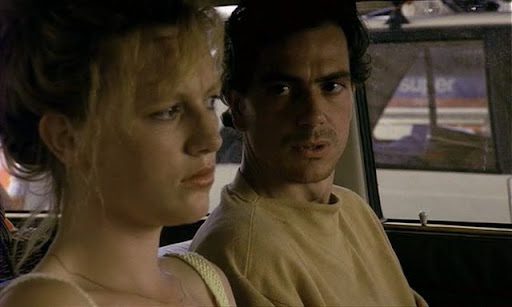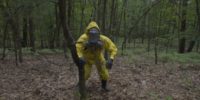Tabatha Wood is a former English teacher and library manager, now a writer who lives in Aotearoa, New Zealand. They’ve had several books published, including Dark Winds Over Wellington, All the Laird’s Men, and they were the creator, editor, and a contributor to Black Dogs, Black Tales: Where the Dogs Don’t Die, a charity anthology with all proceeds going towards the Mental Health Foundation of New Zealand. Seeds is their newest collection, using both new tales and a few reprints. Wood uses both she and they pronouns, so I will be alternating throughout this review.
The stories in Seeds are separated by length: shoots (flash fiction), leaves (short), buds (medium), and blooms (longer fiction). I like that you can pick and choose what you feel like reading, as I often find myself only able to get through a few pages at a time depending on my schedule. Also, I have a terrible memory, so putting down something halfway will inevitably lead to confusion and restarting the whole story. I never had this issue while reading Seeds.

Wood also has a section on her website dedicated to content warnings for every story and book they’ve written. This feels like a rarity, especially within horror fiction, but I absolutely love it (and plan on revising my own novella to include warnings). They are simple and to the point: abusive relationship, death of a child, etc. Many would argue such warnings are unnecessary for books, but Wood has an essay explaining ways this can be done so that they are optional, like putting them in the back of the book or on the author’s website, or both. Many horror fans use horror as a way to safely confront traumatic events from our past. Having a warning is extremely helpful as you can prepare yourself for it. For example, I am absolutely terrified of grey aliens. Sometimes alien stories, especially films, try to hide that they are, in fact, about aliens and make it a twist. If I’m warned ahead of time, I can better deal with it.
I also found it interesting that senses are given special attention in several stories: smell, taste, touch, etc. The way we experience events is not just through visuals but with all our senses, like the fragrance of a former lover’s perfume—or a particular story in Seeds involving a very delicious cake. Wood doesn’t use overly flowery (pun intended) language, either. While many of the stories feature fantastical or supernatural elements, this writing style gives a sense of realism or groundedness. You’re never taken out of the story.
Favourite stories include “Bloom,” which is about a couple visiting an unsettling sunflower field; “Night Wolves,” which features a woman grieving over her sister’s death with a strange black dog; and “Birth Rites,” a folk horror tale about regrowing a person from their bones by a mom and son who really don’t know what they’re getting into. Young Charlie affectionately calls the collective legs, arms, and pelvis growing from planters Mister Skellyplant, which I find adorable.

“In Loving Memory” is probably my worst nightmare. Aimee wakes up to find she’s gone forward 12 years and now has a partner and baby to care for. She immediately has to breastfeed and describes what a strange and uncomfortable feeling it is. To suddenly have to care for this tiny human that relies on you completely is a lot to take in. As Aimee looks through her smartphone (no buttons? Swipe up? What the heck?), she’ll slowly figure out what happened over a decade ago and how her life changed forever.
Parenting is actually a theme across most of the book, and it is explored heavily in “Long Drop,” where a mother is driving across Aotearoa with her neurodivergent child. She’s frustrated that her husband left, and she is exhausted from being the sole parent. Caregiver’s fatigue is something that should be addressed more in fiction, and I think Wood does a great job here of balancing the difficulties of raising a child with extra needs but never portraying them as an object; that child is still a person and is treated well and protected when horrible little goblin creatures show up.
Honestly, I feel Seeds would be great to recommend to someone getting into horror fiction and unsure of what types interest them the most since the book covers a variety of subgenres, styles, and tones. It shows Wood knows how to work within these and isn’t confining or stifling herself either. While this is the first book I’ve read by them, I will definitely be checking out Dark Winds Over Wellington, which is another short story collection.
I’m not sure if I’m alone in this, but I also love author introductions and afterwards to hear the thought process and get a glimpse into their head. As a writer myself, I want to know what makes someone create, what pushes them in life. In her introduction, for example, Woods explains that she works through her emotions through writing, which comes through sharply.
An early copy of Seeds was provided for review purposes. It will release on October 16th, 2021 and can be pre-ordered now.


